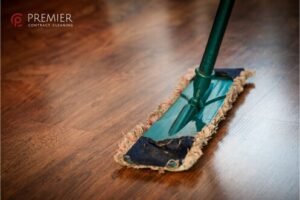Cleaning a bedroom wall is simpler than you think. Start by dusting the surface. Next, use a mild cleaner with a soft cloth. Walls can accumulate dust, stains, and marks over time. A clean wall brightens your room and enhances its overall appearance. Regular cleaning helps maintain the wall's condition and prevents long-term damage. Different […]
Can You Kick Kids Out for Not Cleaning in Ireland: Legal Insights
No, you cannot legally kick kids out for not cleaning in Ireland. The law protects children's rights and ensures their safety at home.
Parenting can be challenging, especially when kids refuse to clean up. In Ireland, parents must follow strict laws that safeguard children's well-being. While it might be tempting to threaten drastic actions, such as kicking them out, it's essential to understand the legal and ethical implications.
This blog will explore the relevant laws in Ireland, the rights of children, and practical solutions for handling household responsibilities. By understanding these aspects, you can maintain a harmonious home environment without resorting to extreme measures. Let's dive in and see what alternatives exist for encouraging kids to clean up their messes.
Legal Rights Of Parents
Can you kick kids out for not cleaning in Ireland? This question brings up the topic of legal rights of parents. Understanding these rights is essential for maintaining a harmonious household. This post will help clarify the responsibilities and limitations parents have in Ireland.

Parental Responsibility
Parents in Ireland have several responsibilities towards their children. These responsibilities ensure the child's well-being and development. Here are some key points:
- Providing a safe home environment
- Ensuring the child receives proper education
- Meeting the child's basic needs, such as food and clothing
- Offering emotional support and guidance
Providing a safe home means parents must maintain a clean and organized living space. But what happens if the child refuses to help with cleaning? Parents have the right to enforce house rules. They can set consequences for not following these rules.
But, it is crucial to approach this situation with understanding and patience. Communication plays a vital role in resolving conflicts. Parents should explain why cleaning is important. They should also listen to the child's concerns and find a compromise.
Ultimately, parents are responsible for their child's actions until they reach adulthood. This includes teaching them the value of responsibility and teamwork.
To Get The Best Cleaning Services In Ireland - Click Here
Rights And Limitations
While parents have many rights, they also face limitations. These limitations protect the child's rights and well-being. Here are some important points to consider:
- Parents cannot use physical punishment
- Children have the right to express their opinions
- Parents must respect the child's privacy
- Legal age of independence is 18 years
Physical punishment is illegal in Ireland. Parents must find alternative methods to discipline their children. This includes positive reinforcement and setting clear boundaries. Communication is key to understanding and respecting each other's rights.
Children have the right to voice their opinions. Parents should listen and consider these opinions. This helps build a respectful and trusting relationship. Privacy is another important aspect. Parents must respect their child's personal space and belongings.
Once a child turns 18, they are legally independent. Parents can no longer enforce rules or make decisions for them. Until then, parents must balance their rights with the child's rights. This balance ensures a healthy and supportive environment for growth and development.
Children's Rights In Ireland
In Ireland, the topic of whether parents can kick their children out for not cleaning raises many questions about children's rights. Ensuring that children are treated fairly and with respect is a top priority in Ireland. This blog post explores the legal protections for children and the age considerations involved.
Protection Under Law
Irish law provides strong protection for children, ensuring their safety and well-being. The Children's Act 2001 is a key piece of legislation that safeguards children's rights. It outlines the responsibilities of parents and the state in protecting children.
Here are some critical points:
- Child Welfare: Parents must provide a safe environment for their children.
- Education: Children have the right to education.
- Health: Children must have access to medical care.
- Protection from Abuse: It is illegal to abuse or neglect a child.
Parents have a duty to care for their children, and this includes ensuring that they are not put in harmful situations. Kicking a child out for not cleaning could be seen as neglect, depending on the circumstances.
The table below summarizes the key protections:
| Area of Protection | Details |
| Child Welfare | Safe living environment |
| Education | Right to attend school |
| Health | Access to medical care |
| Protection from Abuse | Legal protection from physical and emotional harm |
Age Considerations
Age plays a significant role in determining how children are treated under Irish law. Different age groups have different rights and responsibilities.
For children under the age of 16:
- Dependent Status: They are considered dependents and must be cared for by their parents.
- Education Requirements: They must attend school until at least 16 years old.
For teenagers between 16 and 18:
- Partial Independence: They have more rights, such as working part-time.
- Still Protected: They are still under their parents' care legally.
Once a person turns 18, they are legally considered an adult. This means they can make their own decisions and are no longer under their parents' legal care.
It is important to note that kicking a child out, regardless of age, without ensuring they have a safe place to go could be seen as abandonment. This could have legal consequences for the parents.
The table below highlights the age considerations:
| Age Group | Legal Status |
| Under 16 | Dependent, must attend school |
| 16-18 | Partial independence, still under parental care |
| 18 and over | Considered an adult |
To Get The Best Cleaning Services In Ireland - Click Here
Household Expectations
Household expectations play a crucial role in maintaining a clean and organized home. In Ireland, many parents wonder if they can kick their kids out for not cleaning. While the idea may seem extreme, it highlights the importance of setting clear expectations. Understanding how to set boundaries and create family agreements can help ensure everyone contributes to household chores.
Setting Boundaries
Setting boundaries is essential for a harmonious home. Kids need to understand what is expected of them. Clear rules help avoid misunderstandings and conflicts.
Start by discussing:
- Why cleanliness is important
- Specific tasks they need to do
- Consequences of not doing chores
Creating a chore chart can be helpful. Here is a simple example:
| Day | Task | Person Responsible |
| Monday | Take out the trash | John |
| Tuesday | Wash dishes | Mary |
| Wednesday | Vacuum living room | John |
| Thursday | Laundry | Mary |
| Friday | Clean bathroom | John |
Explain the consequences clearly. For example:
- No screen time until chores are done
- Loss of allowance for the week
- Extra chores as a penalty
Consistency is key. Enforce rules fairly and without exceptions. This helps kids understand the importance of their responsibilities.
Family Agreements
Creating family agreements ensures everyone is on the same page. It involves all family members in the decision-making process.
Steps to create a family agreement:
- Gather the family for a meeting
- Discuss the importance of household chores
- Agree on specific tasks for each member
- Set deadlines for each chore
- Decide on rewards and consequences
Write down the agreement and have everyone sign it. This makes it official and shows commitment.
Here is a simple template:
| Family Member | Task | Deadline |
| John | Take out the trash | Monday night |
| Mary | Wash dishes | Tuesday evening |
| John | Vacuum living room | Wednesday afternoon |
| Mary | Laundry | Thursday morning |
| John | Clean bathroom | Friday evening |
Review the agreement regularly. Adjust tasks if needed. Encourage open communication about any issues.
By setting boundaries and creating family agreements, you foster a cooperative and clean household. Kids learn responsibility and the value of teamwork.

Consequences Of Non-compliance
In Ireland, parents often face challenges in maintaining household cleanliness. But can you kick kids out for not cleaning? Understanding the consequences of non-compliance is crucial for both parents and children. This section explores the impact on family dynamics and emotional repercussions that arise from such actions.
Impact On Family Dynamics
Not cleaning up can strain family relationships. Ignoring chores can lead to conflicts and misunderstandings.
- Increased Tension: Parents might feel stressed or angry.
- Lack of Trust: Children might feel their parents don't trust them to do chores.
- Poor Communication: Arguments over cleaning can reduce effective communication.
Consider the following table showcasing the impact on family dynamics:
| Aspect | Impact |
| Trust | Decreases when children don't follow rules |
| Respect | Reduces between family members |
| Harmony | Disturbed due to constant conflicts |
Parents might feel disappointed. Children might feel misunderstood. This can create a cycle of negativity. Establishing clear rules and expectations can help. Encourage open discussions about chores and responsibilities.
To Get The Best Cleaning Services In Ireland - Click Here
Emotional Repercussions
The emotional effects of non-compliance can be significant. Both parents and children may experience negative feelings.
- Resentment: Children might resent their parents' strictness.
- Guilt: Parents might feel guilty for being too harsh.
- Anxiety: Constant conflicts can lead to anxiety in both parties.
Parents may feel they are failing in their responsibilities. Children may feel unloved or unwanted. These feelings can affect their emotional well-being.
Consider the following table summarizing emotional repercussions:
| Emotion | Impact on Parents | Impact on Children |
| Resentment | Feel unappreciated | Feel controlled |
| Guilt | Question their parenting | Feel they are a burden |
| Anxiety | Worry about family harmony | Fear of punishment |
To mitigate these emotional impacts, it's vital to promote a positive environment. Encourage mutual respect and understanding. Focus on constructive feedback rather than punishment.
Alternatives To Kicking Out
In Ireland, kicking kids out for not cleaning can lead to strained relationships and emotional distress. Fortunately, there are more constructive approaches to encourage tidiness. These alternatives not only foster a cleaner home but also promote positive behavior and responsibility among children.
Positive Reinforcement
Positive reinforcement is an effective way to motivate children to clean. Instead of focusing on what they are not doing, highlight and reward their good behavior. This method encourages them to repeat the behavior.
Here are some ways to use positive reinforcement:
- Verbal Praise: A simple "Great job on cleaning your room!" can go a long way.
- Stickers and Charts: Create a reward chart where kids earn stickers for each task completed. After collecting a certain number of stickers, they get a prize.
- Extra Playtime: Offer additional playtime or screen time as a reward for cleaning up.
Positive reinforcement not only makes children feel good about their accomplishments but also builds their self-esteem. It's a win-win situation. Children are more likely to keep their space tidy if they know their efforts are appreciated.
| Task | Reward |
| Cleaning Room | 30 minutes extra playtime |
| Doing Dishes | Choice of a movie to watch |
| Tidying Up Toys | A new toy after consistent cleaning |
Using positive reinforcement consistently can lead to long-term habits. Kids will start to see cleaning as a fun and rewarding activity.
Encouraging Responsibility
Teaching children responsibility is essential for their growth. Assigning specific chores helps them understand their role in maintaining the household. It also prepares them for the future.
Here are some strategies to encourage responsibility:
- Set Clear Expectations: Make sure children know what is expected of them. Use simple instructions and be consistent.
- Provide Age-Appropriate Tasks: Assign tasks suitable for their age. For example, young children can pick up toys, while older kids can help with laundry.
- Model the Behavior: Show them how to do the tasks. Children learn by watching adults.
- Regular Check-ins: Regularly check their progress. Provide guidance if needed.
Creating a chore chart can help. It provides a visual reminder of their responsibilities.
| Day | Chores |
| Monday | Vacuum living room |
| Tuesday | Take out the trash |
| Wednesday | Water the plants |
Encouraging responsibility helps children develop a sense of pride in their work. They will feel more capable and independent. Over time, these habits will become second nature. Instead of resisting chores, they will see them as a part of daily life.
Cultural Perspectives
Introduction paragraph about Can You Kick Kids Out for Not Cleaning in Ireland and Cultural Perspectives...
Irish Family Values
In Ireland, family values hold a special place in society. Irish families often emphasize unity, respect, and mutual support. Many households cherish close-knit relationships, making it rare for parents to consider drastic measures like kicking out a child for not cleaning. Here's why:
- Respect for Elders: Children are taught to respect their parents and elders from a young age.
- Mutual Support: Families often operate as a team, helping each other through challenges.
- Communication: Open dialogue is encouraged to resolve conflicts peacefully.
The importance of these values means that parents might opt for other disciplinary methods rather than removing a child from the home. They could use techniques such as:
- Setting clear expectations and responsibilities.
- Implementing a reward system for good behavior.
- Engaging in family meetings to discuss chores.
In essence, Irish family values prioritize harmony and cooperation over punitive actions. This cultural perspective shapes how parents handle household issues, including cleaning responsibilities.
Generational Differences
Generational differences can also influence how cleaning responsibilities are viewed in Irish households. Older generations often have traditional views on household roles, while younger generations may see things differently. Here’s a closer look:
| Older Generation | Younger Generation |
| Believes in strict discipline | Prefers communication and understanding |
| Sees chores as a duty | Views chores as shared responsibility |
| May enforce rules strictly | Looks for cooperative solutions |
Older parents might expect immediate compliance with cleaning duties, reflecting their upbringing. Younger parents might encourage more flexible approaches, focusing on teaching and collaboration. This generational shift can affect how conflicts over cleaning are managed.
Understanding these differences helps in appreciating why some parents may feel more inclined to enforce strict rules, while others may seek alternative solutions. It’s about balancing respect for traditions with modern parenting styles.

When To Seek Help
Introduction paragraph about Can You Kick Kids Out for Not Cleaning in Ireland and When to Seek Help...
Counseling Services
Sometimes, the issue goes beyond a child's refusal to clean. Seeking professional counseling services can help address underlying problems. Counseling can identify deeper issues such as anxiety, depression, or family conflicts. In Ireland, there are several options available:
- Private Therapists: These professionals offer personalized sessions. Costs vary, but many provide sliding scale fees.
- School Counselors: Available in most schools, they can provide initial support and refer to other services if needed.
- Community Health Services: These are often free or low-cost. They include family therapy and individual counseling.
| Benefit | Description |
| Improved Communication | Helps family members understand each other better. |
| Conflict Resolution | Provides strategies to resolve disputes amicably. |
| Emotional Support | Offers a safe space to express feelings and concerns. |
Seeking help through counseling is a proactive step. It can improve family dynamics and help create a harmonious household.
To Get The Best Cleaning Services In Ireland - Click Here
Support Groups
Support groups can offer much-needed comfort and advice. Joining a support group allows parents to share experiences and learn from others facing similar challenges. Ireland has many support groups that can help:
- Parenting Groups: These groups meet regularly to discuss parenting strategies and provide emotional support.
- Online Forums: Accessible anytime, these forums offer advice and a sense of community.
- Local Community Centers: Often host support groups for parents. These centers provide resources and networking opportunities.
- Shared Experiences: Hearing from others in similar situations can be reassuring.
- Practical Advice: Members often share effective strategies and solutions.
- Emotional Support: Provides a safe space to express frustrations and receive empathy.
Support groups can be a valuable resource for parents struggling with their children's behavior. They offer a sense of community and practical advice. By connecting with others, parents can find new ways to encourage their children to clean and contribute to the household.
Communication Strategies
Parents in Ireland often face challenges with kids who don't clean up. This can lead to frustration and tension at home. While kicking kids out for not cleaning may seem extreme, effective communication strategies can help resolve these issues. Let's explore some key approaches.
Effective Dialogue
Talking openly with kids is crucial. Use effective dialogue to express expectations and concerns about cleaning. Here are some tips:
- Be clear and specific: Instead of saying "clean your room," say "put your toys in the box and make your bed."
- Use a calm tone: Avoid yelling or getting angry. Stay calm to keep the conversation productive.
- Set a routine: Establish a regular cleaning schedule. For example, "Every Saturday morning, we clean our rooms."
- Provide reasons: Explain why cleaning is important. "A clean room helps you find your toys easily and keeps the house tidy."
- Offer choices: Give kids some control. Ask, "Would you like to clean your room before or after dinner?"
Effective dialogue fosters understanding and cooperation. It helps kids see cleaning as a shared responsibility, not a chore. Using these strategies can make conversations about cleaning more productive.
Active Listening
Active listening is another key strategy. It involves truly hearing what your kids are saying. Here's how to practice active listening:
- Give full attention: Stop what you're doing and focus on your child. Make eye contact to show you're listening.
- Acknowledge feelings: Let your child know you understand their emotions. Say, "I see you're upset about cleaning."
- Paraphrase: Repeat what your child says in your own words. "So, you feel cleaning is too hard right now?"
- Ask questions: Encourage your child to share more. "What makes cleaning difficult for you?"
- Avoid interrupting: Let your child finish speaking before you respond. This shows respect and patience.
Active listening builds trust and respect. It helps you understand your child's perspective and find common ground. By practicing active listening, you can address cleaning issues more effectively and create a positive home environment.
Preparing For Independence
As children grow up, parents often face the challenge of teaching them responsibility. One common issue is whether you can kick kids out for not cleaning in Ireland. While it's essential to maintain a clean home, preparing kids for independence is equally important. This involves teaching them various life skills and financial literacy, ensuring they are ready to face the world confidently.
Life Skills Training
Life skills are essential for children to learn as they prepare for independence. These skills help them manage their daily lives efficiently and responsibly. Here are some key areas to focus on:
- Household Chores: Teaching children to clean their rooms, do laundry, and wash dishes helps them understand the importance of maintaining a clean environment.
- Cooking: Basic cooking skills, such as making simple meals and understanding kitchen safety, are vital for their independence.
- Time Management: Learning to prioritize tasks, set goals, and manage time effectively prepares them for adult responsibilities.
- Personal Hygiene: Emphasizing the importance of regular bathing, dental care, and grooming ensures they maintain good health and self-esteem.
- Communication: Teaching kids how to communicate effectively helps them build strong relationships and navigate social situations.
Below is a table summarizing essential life skills:
| Skill | Importance |
| Household Chores | Keeps living space clean and organized |
| Cooking | Ensures they can prepare healthy meals |
| Time Management | Helps them be productive and meet deadlines |
| Personal Hygiene | Maintains good health and appearance |
| Communication | Builds strong relationships and social skills |
Financial Literacy
Understanding finances is crucial for kids as they prepare for independence. Teaching them financial literacy can prevent future financial struggles. Here are some important aspects to cover:
- Budgeting: Show kids how to create a budget, track their spending, and live within their means. This helps them manage their money wisely.
- Savings: Encourage children to save a portion of their allowance or earnings. Explain the benefits of having an emergency fund and saving for future goals.
- Banking: Teach them how to open and manage a bank account. This includes understanding how to deposit, withdraw, and keep track of their balance.
- Credit: Explain the concept of credit, including how to use it responsibly and the importance of maintaining a good credit score.
- Investing: Introduce basic investment concepts, such as stocks, bonds, and mutual funds. This helps them understand how to grow their wealth over time.
Here's a table summarizing key financial literacy topics:
| Topic | Importance |
| Budgeting | Helps manage money and avoid debt |
| Savings | Ensures financial security and goal achievement |
| Banking | Facilitates safe and efficient money management |
| Credit | Builds financial credibility and access to loans |
| Investing | Helps grow wealth and secure financial future |
Conclusion And Recommendations
Cleaning can be a point of contention in many households. In Ireland, parents might wonder if they can kick their kids out for not cleaning. This blog section provides a conclusion and recommendations on this topic.
Balancing Discipline And Support
Balancing discipline and support is crucial when addressing cleaning issues with children. Parents must enforce rules while also offering guidance. Here are some strategies:
- Set Clear Expectations: Clearly outline what cleaning tasks are required. Use a chore chart to keep track of responsibilities.
- Consistent Enforcement: Apply rules consistently to avoid confusion. If a child knows the consequences, they are more likely to follow the rules.
- Offer Rewards: Positive reinforcement can encourage good behavior. Small rewards for completing chores can be effective.
- Support and Teach: Sometimes children need guidance. Show them how to clean properly and offer help when necessary.
It's important to remember that children are still learning. Providing support while enforcing discipline can help them develop good habits. A balance between the two can lead to a more harmonious household.
Final Thoughts
Deciding to kick a child out for not cleaning can be extreme. In Ireland, parents have legal obligations to care for their children. Alternative approaches may be more effective:
| Approach | Description |
| Family Meetings | Discuss issues openly as a family. Find solutions together. |
| Professional Help | Consider counseling if the problem persists. A professional can offer advice. |
| Adjust Responsibilities | Ensure chores are age-appropriate. Adjust tasks as needed. |
Every family is different. What works for one may not work for another. Finding a solution that fits your family's needs is key. Patience and understanding go a long way.
In the end, the goal is to teach children responsibility while maintaining a supportive environment. This approach fosters growth and respect within the family.
To Get The Best Cleaning Services In Ireland - Click Here

Frequently Asked Questions
Can You Legally Kick Kids Out For Not Cleaning?
No, you cannot legally kick kids out for not cleaning in Ireland.
What Are Alternatives To Kicking Kids Out?
Talk to them. Set clear rules. Use positive reinforcement. Consistent routines help.
Are There Legal Consequences For Kicking Kids Out?
Yes, there can be legal consequences. You may face child welfare investigations.
Conclusion
Kicking kids out for not cleaning in Ireland raises many questions. Legal and ethical concerns must be considered. Communication with your children is essential. Set clear rules and expectations. Seek professional advice if needed. Understanding these aspects can help manage such situations better.
Always aim for a loving and supportive environment. This approach fosters cooperation and responsibility in kids.

Catalin Fatul is the founder and expert behind Premier Contract Cleaning, dedicated to providing top-notch cleaning solutions and tips. With a passion for cleanliness and a commitment to quality, Catalin brings years of experience in the cleaning industry to help readers maintain pristine spaces. Whether it's offering the latest cleaning hacks or recommending the best products, Catalin's mission is to make cleaning efficient, effective, and enjoyable.
The golden rule of cleaning is simple: clean from top to bottom. This basic principle ensures that dirt and dust don't settle on already cleaned areas. Understanding this rule can transform your cleaning routine. It saves time and effort, making the process more efficient. Imagine tidying up a room only to find dust has settled […]
Some cleaning products can harm surfaces or your health. Knowing what to avoid is essential for safe cleaning. Cleaning is a routine task, but choosing the right supplies is crucial. Some products can damage surfaces or release harmful chemicals. This is especially important in homes with children or pets. For example, certain cleaners may harm […]
The 20 Minute Rule in cleaning is a simple strategy. It involves dedicating just 20 minutes to tidying up. This method is designed to make cleaning less overwhelming and more manageable. Cleaning can feel like a daunting task. Many people struggle to find time to keep their spaces tidy. The 20 Minute Rule breaks down […]


